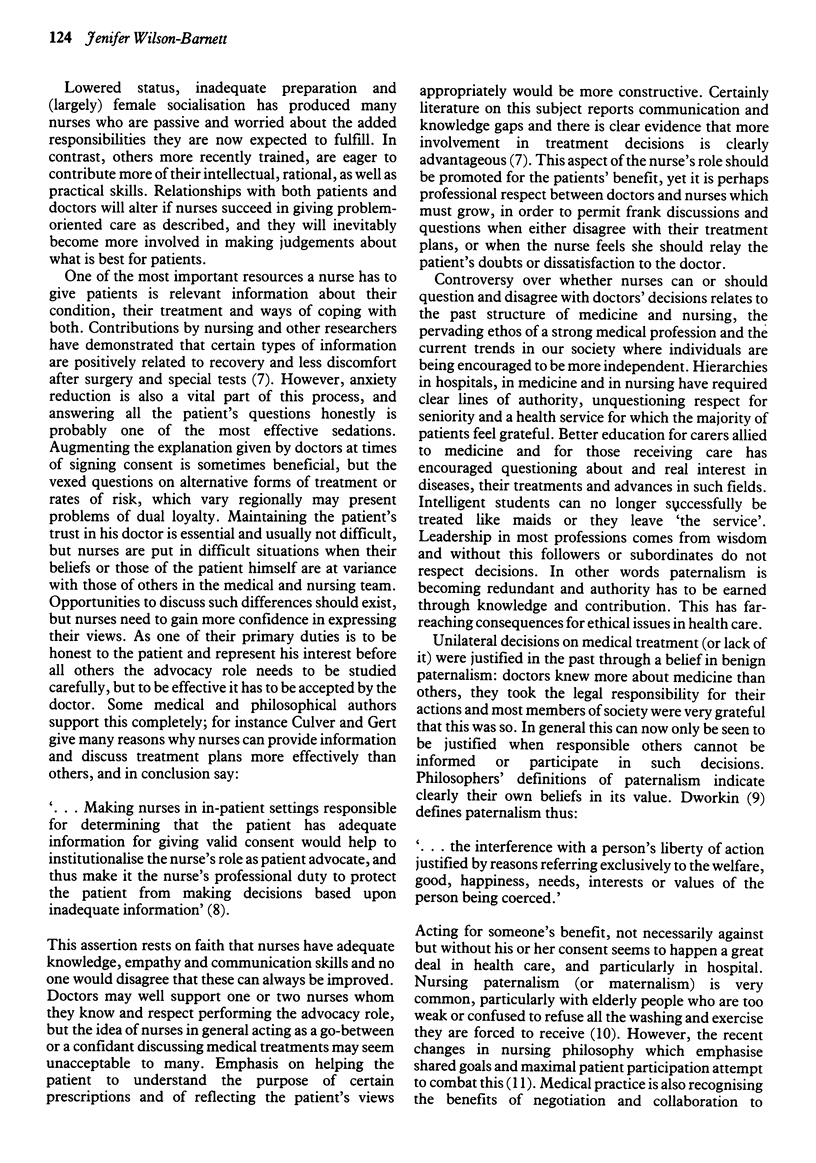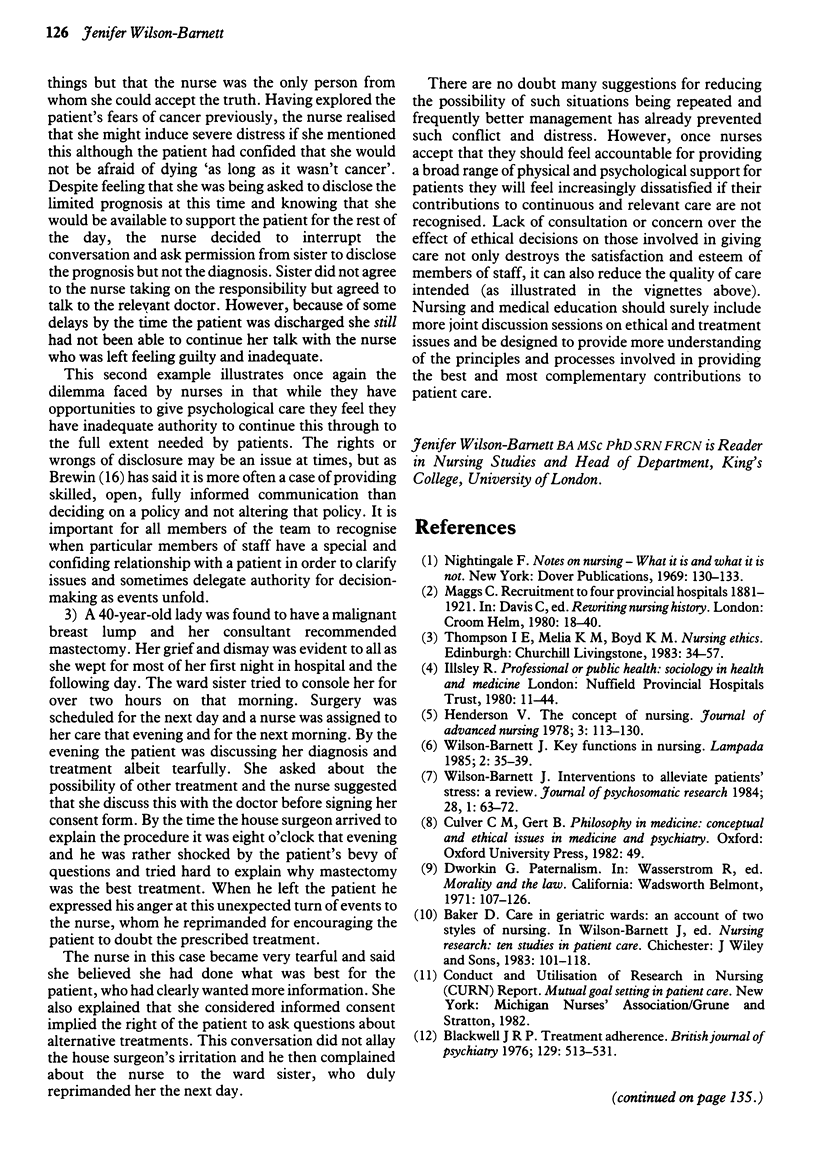Abstract
Nurses are increasingly realising that they can offer relevant information and participate in decision-making involving ethical issues. However, inter-professional communications are frequently inadequate, and do not permit exchange of opinions. The consequences are often frustrating and upsetting for nurses whose care is affected by others' policies. This paper explores these issues using some clinical examples.
Full text
PDF




Selected References
These references are in PubMed. This may not be the complete list of references from this article.
- Blackwell B. Treatment adherence. Br J Psychiatry. 1976 Dec;129:513–531. doi: 10.1192/bjp.129.6.513. [DOI] [PubMed] [Google Scholar]
- Brewin T. B. The cancer patient: communication and morale. Br Med J. 1977 Dec 24;2(6103):1623–1627. doi: 10.1136/bmj.2.6103.1623. [DOI] [PMC free article] [PubMed] [Google Scholar]
- Buchanan Allen. Medical paternalism. Philos Public Aff. 1978 Summer;7(4):370–390. [PubMed] [Google Scholar]
- Henderson V. The concept of nursing. J Adv Nurs. 1978 Mar;3(2):113–130. doi: 10.1111/j.1365-2648.1978.tb00837.x. [DOI] [PubMed] [Google Scholar]
- Mitchell J. R. Is nursing any business of doctors? A simple guide to the "nursing process". Br Med J (Clin Res Ed) 1984 Jan 21;288(6412):216–219. doi: 10.1136/bmj.288.6412.216. [DOI] [PMC free article] [PubMed] [Google Scholar]
- Weiss G. B. Paternalism modernised. J Med Ethics. 1985 Dec;11(4):184–187. doi: 10.1136/jme.11.4.184. [DOI] [PMC free article] [PubMed] [Google Scholar]
- Wilson-Barnett J. Interventions to alleviate patients' stress: a review. J Psychosom Res. 1984;28(1):63–72. doi: 10.1016/0022-3999(84)90041-2. [DOI] [PubMed] [Google Scholar]


